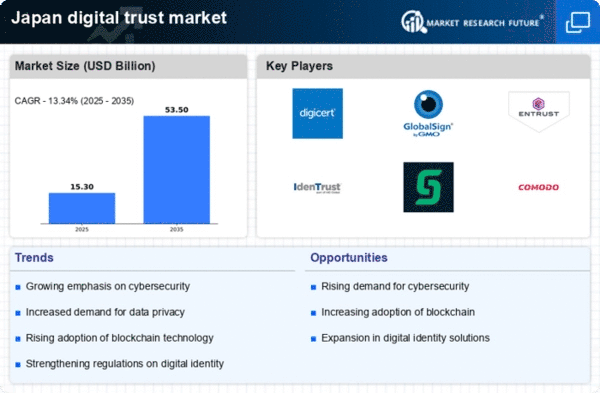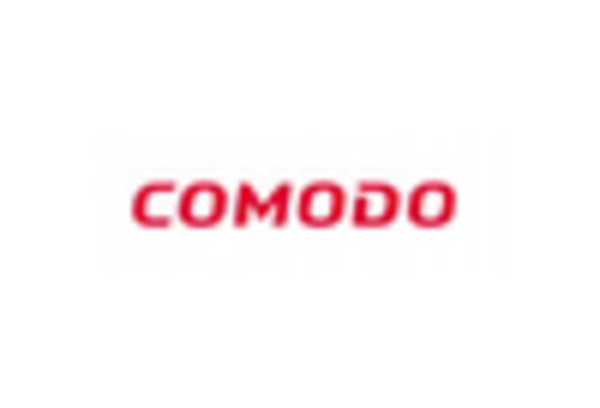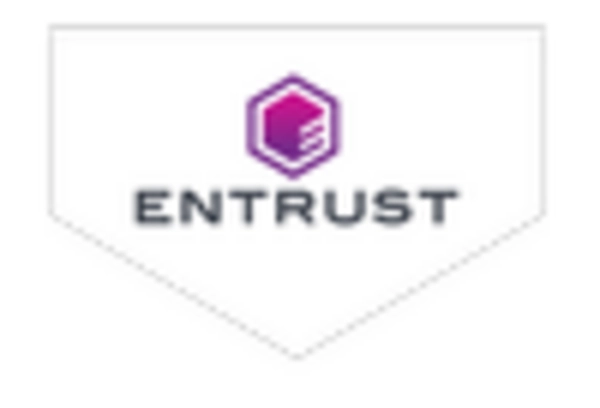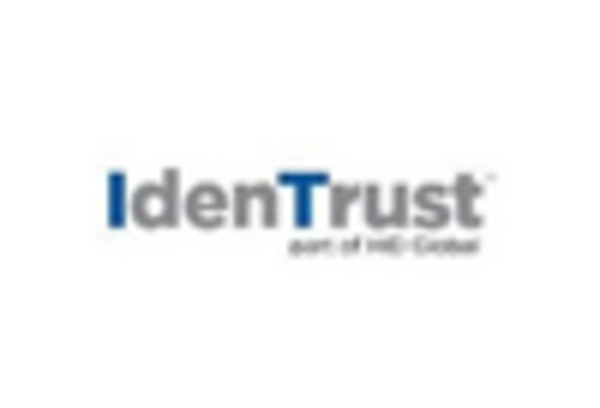Increased Cyber Threats
The digital trust market in Japan is experiencing heightened demand due to the increasing frequency and sophistication of cyber threats. As organizations face a growing array of cyberattacks, including ransomware and phishing, the need for robust cybersecurity measures becomes paramount. In 2025, it is estimated that cybercrime could cost the Japanese economy over ¥1 trillion annually. This alarming trend compels businesses to invest in digital trust solutions to safeguard sensitive data and maintain customer confidence. Consequently, the digital trust market is likely to expand as companies prioritize security investments to mitigate risks associated with cyber threats.
Shift Towards Remote Work
The shift towards remote work in Japan has created new challenges and opportunities for the digital trust market. As more employees work from home, organizations must ensure secure access to sensitive information and maintain data integrity. This transition has led to an increased reliance on digital trust solutions, such as secure access management and encryption technologies. Reports indicate that the remote work trend could lead to a 30% increase in demand for digital trust services by 2026. Consequently, businesses are likely to prioritize investments in digital trust solutions to address the security challenges posed by remote work arrangements.
Regulatory Landscape Evolution
The evolving regulatory landscape in Japan plays a crucial role in shaping the digital trust market. With the introduction of stricter data protection laws and compliance requirements, businesses are compelled to enhance their digital trust measures. The Personal Information Protection Act (PIPA) mandates organizations to implement comprehensive data protection strategies, which in turn drives demand for digital trust solutions. As companies strive to comply with these regulations, the digital trust market is expected to witness significant growth, as organizations invest in technologies and practices that ensure compliance and protect consumer data.
Consumer Awareness and Expectations
In Japan, there is a notable rise in consumer awareness regarding data privacy and security, which significantly influences the digital trust market. As individuals become more informed about their rights and the implications of data breaches, they increasingly demand transparency and accountability from businesses. Surveys indicate that approximately 70% of Japanese consumers are willing to switch brands if they feel their data is not handled securely. This shift in consumer expectations drives companies to adopt digital trust solutions, fostering a competitive landscape where trust becomes a key differentiator in the market.
Technological Advancements in Security
Rapid technological advancements in security solutions are propelling the digital trust market in Japan. Innovations such as artificial intelligence, machine learning, and blockchain technology are transforming how organizations approach digital trust. For instance, AI-driven security systems can analyze vast amounts of data to detect anomalies and potential threats in real-time. As these technologies become more accessible, businesses are likely to integrate them into their operations, enhancing their digital trust frameworks. This trend suggests a robust growth trajectory for the digital trust market as organizations seek to leverage cutting-edge technologies to bolster their security postures.
















